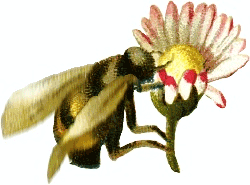Summary 26.September
At the very beginning, Illya awarded all of us because of the writings she had got. She tried to convince us that she really liked reading them. She also mentioned the correction key she has given. If we would like to rewrite a text after her correction, she offers to correct it again. She spoke also about the advantages of handwriting or e-mailing of scripts: Handwriting is what we are going to do at the exam, if we send it by e-mail, we’ll get it back quite faster, …and the word spelling programme points the wrong words out … It’s our choice!
Before repeating the names Illya told us that Maggie had quit the course and joined in one in Sursee. But not only she was missing, five participants dropped in later.
To warm up we started working out the meaning of several up and down words. They are all now on the wiki, go, have a look and practice!
Discussing the homework’s reading task Illya advised us slowly to begin reading faster and faster. Then we made groups of four and gave our prepared speeches about success in life. The group gave feedback to the speaker about structures, vocabulary and confidence in speaking. Regina, Anita and Patricia were encouraged to give their speeches to the class. They did it very well! Illya gave the speakers her feedback and important points to notice for the one-minute-speaking at the exam:
· Structure what you’ll say: First say, what you’ll say; then say it; finally say what you have said.
· You can start with a question, with three main points you will mention…
· Use wide and accurate vocabulary.
· Take care of rhythm and flow of language. Think with your mouth open!
· Show confidence. Nobody at the exam is interested in your feeling, you just have to seem confident!
By doing the listening on page 12 we acquired some knowledge about Alfred Nobel, his foundation and some famous winners of the Nobel prize. We practised predicting before and note taking while listening.
Illya showed us four different Grammar books and we could compare the chapter about modal verbs. Afterwards she gave her comments about each book.
· “Advanced Language Practice” specifically prepares for advanced (and proficiency) exam. It includes Vocabulary and tasks like “English in Use” at the exam.
· “Advanced Grammar in Use” gives lots of practice and is similar to “the blue Murphy”
· “Exploring Grammar in Context”: There are interesting exercises that want you to think about grammar rules.
· “Grammar for English Language Teacher”: It’s a very good grammar reference book, and it’s very useful if you are teaching older pupils, it shows you typical difficulties of learners.
Eventually, we got some homework:
· Page 14/15: Writing. You find advice how to organise the writing on page 15. Study the example and copy bits of words in your writing. It enrich your language. Use also the wordlist on page 209 and the language of possibility on page 210. Send your text by e-mail or bring it next time.
· Have a look at page 14: Extension.
· Complete Unit 1 from page 14 up to page 17.
· Don’t forget practise reading e.g. on BBC and improve your speed.
· Do the crossword puzzle on wiki
· And add your comment or post to the blog or wiki.
Another lively and busy English evening ended at nine o’clock. Have a nice time and enjoy your holiday!
 First I'd like to thank you for the interesting questions you asked Dorothea before and while she was visiting the class. She really enjoyed the visit and agrees with me that you make a wonderful class.
First I'd like to thank you for the interesting questions you asked Dorothea before and while she was visiting the class. She really enjoyed the visit and agrees with me that you make a wonderful class.











